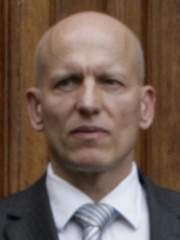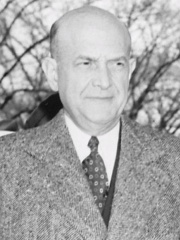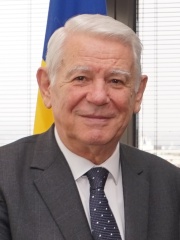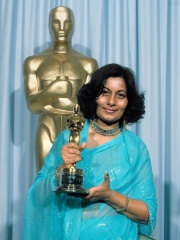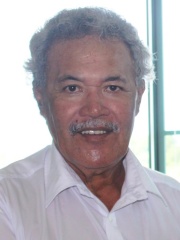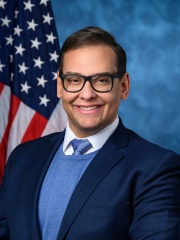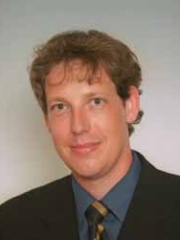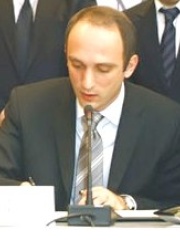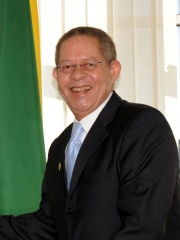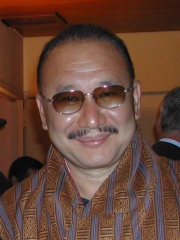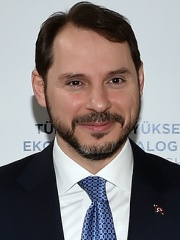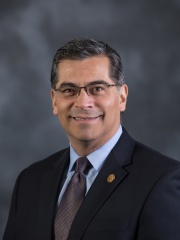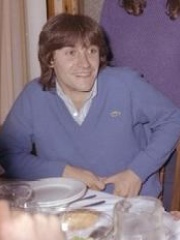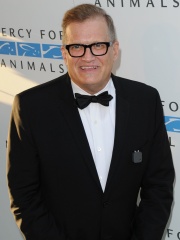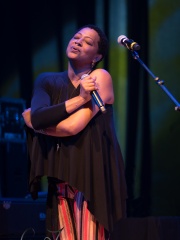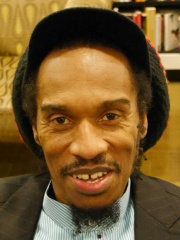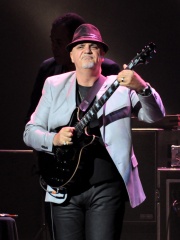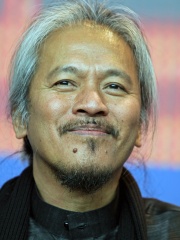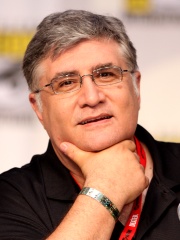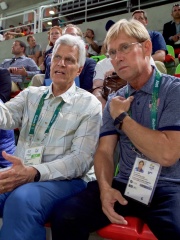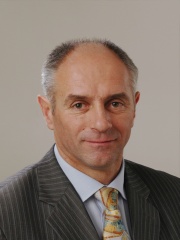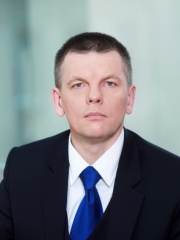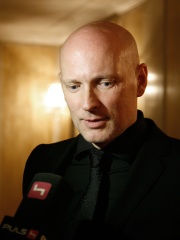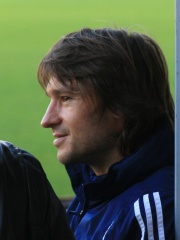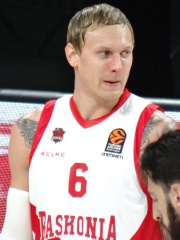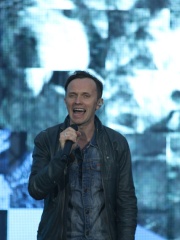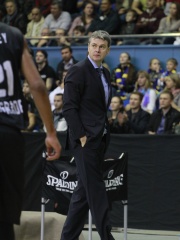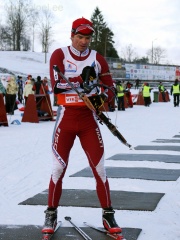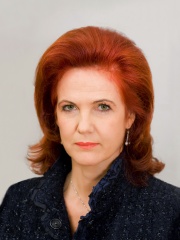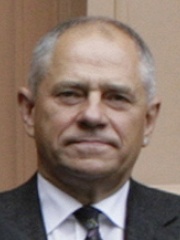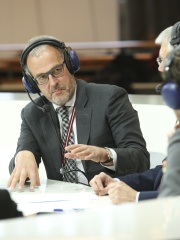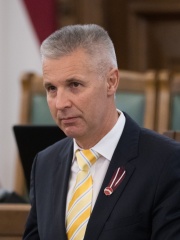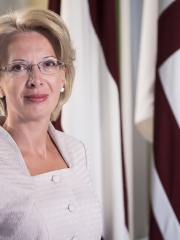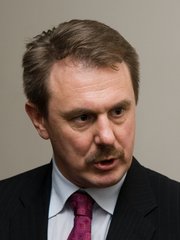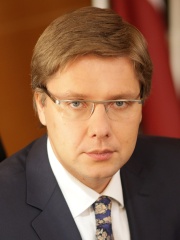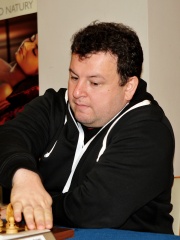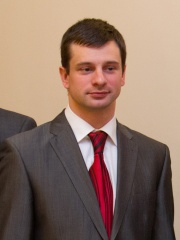POLITICIAN
Andris Šķēle
1958 - Today
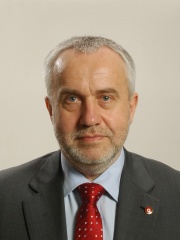
 Andris Šķēle
Andris Šķēle
Andris Šķēle (born 16 January 1958) is a Latvian former politician and business oligarch. He served two terms as Prime Minister of Latvia from 1995 to 1997, and again from 1999 to 2000. Read more on Wikipedia
His biography is available in 17 different languages on Wikipedia. Andris Šķēle is the 17,496th most popular politician (down from 17,198th in 2024), the 205th most popular biography from Latvia (down from 198th in 2019) and the 52nd most popular Latvian Politician.
Memorability Metrics
Page views of Andris Šķēle by language
Among POLITICIANS
Among politicians, Andris Šķēle ranks 17,496 out of 19,576. Before him are Guntars Krasts, Louis A. Johnson, Teodor Meleșcanu, Bhanu Athaiya, Enele Sopoaga, and George Santos. After him are Stanislav Gross, Grigol Mgaloblishvili, Richard J. Terrile, Bruce Golding, Sangay Ngedup, and Berat Albayrak.
Most Popular Politicians in Wikipedia
Go to all RankingsGuntars Krasts
1957 - Present
HPI: 50.40
Rank: 17,497
Louis A. Johnson
1891 - 1966
HPI: 50.39
Rank: 17,498
Teodor Meleșcanu
1941 - Present
HPI: 50.39
Rank: 17,499
Bhanu Athaiya
1929 - 2020
HPI: 50.39
Rank: 17,500
Enele Sopoaga
1956 - Present
HPI: 50.38
Rank: 17,501
George Santos
1988 - Present
HPI: 50.38
Rank: 17,502
Andris Šķēle
1958 - Present
HPI: 50.38
Rank: 17,503
Stanislav Gross
1969 - 2015
HPI: 50.38
Rank: 17,504
Grigol Mgaloblishvili
1973 - Present
HPI: 50.37
Rank: 17,505
Richard J. Terrile
1951 - Present
HPI: 50.37
Rank: 17,506
Bruce Golding
1947 - Present
HPI: 50.36
Rank: 17,507
Sangay Ngedup
1953 - Present
HPI: 50.36
Rank: 17,508
Berat Albayrak
1978 - Present
HPI: 50.36
Rank: 17,509
Contemporaries
Among people born in 1958, Andris Šķēle ranks 554. Before him are Xavier Becerra, Pedro Uralde, Drew Carey, Lisa Fischer, Benjamin Zephaniah, and Jānis Ķipurs. After him are Frank Gambale, Lav Diaz, Maurice LaMarche, Eva Korpela, Bart Conner, and Víctor Diogo.
Others Born in 1958
Go to all RankingsXavier Becerra
POLITICIAN
1958 - Present
HPI: 50.49
Rank: 548
Pedro Uralde
SOCCER PLAYER
1958 - Present
HPI: 50.45
Rank: 549
Drew Carey
PRESENTER
1958 - Present
HPI: 50.45
Rank: 550
Lisa Fischer
SINGER
1958 - Present
HPI: 50.40
Rank: 551
Benjamin Zephaniah
WRITER
1958 - 2023
HPI: 50.38
Rank: 552
Jānis Ķipurs
ATHLETE
1958 - Present
HPI: 50.38
Rank: 553
Andris Šķēle
POLITICIAN
1958 - Present
HPI: 50.38
Rank: 554
Frank Gambale
MUSICIAN
1958 - Present
HPI: 50.35
Rank: 555
Lav Diaz
FILM DIRECTOR
1958 - Present
HPI: 50.33
Rank: 556
Maurice LaMarche
ACTOR
1958 - Present
HPI: 50.33
Rank: 557
Eva Korpela
ATHLETE
1958 - Present
HPI: 50.28
Rank: 558
Bart Conner
GYMNAST
1958 - Present
HPI: 50.27
Rank: 559
Víctor Diogo
SOCCER PLAYER
1958 - Present
HPI: 50.26
Rank: 560
In Latvia
Among people born in Latvia, Andris Šķēle ranks 205 out of 323. Before him are Ivans Klementjevs (1960), Einars Repše (1961), Vera Zozulya (1956), Alvis Hermanis (1965), Guntars Krasts (1957), and Jānis Ķipurs (1958). After him are Vitālijs Astafjevs (1971), Jānis Timma (1992), Inta Kļimoviča (1951), Renārs Kaupers (1974), Ainars Bagatskis (1967), and Ilmārs Bricis (1970).
Others born in Latvia
Go to all RankingsIvans Klementjevs
POLITICIAN
1960 - Present
HPI: 50.81
Rank: 199
Einars Repše
POLITICIAN
1961 - Present
HPI: 50.75
Rank: 200
Vera Zozulya
ATHLETE
1956 - Present
HPI: 50.70
Rank: 201
Alvis Hermanis
ACTOR
1965 - Present
HPI: 50.60
Rank: 202
Guntars Krasts
POLITICIAN
1957 - Present
HPI: 50.40
Rank: 203
Jānis Ķipurs
ATHLETE
1958 - Present
HPI: 50.38
Rank: 204
Andris Šķēle
POLITICIAN
1958 - Present
HPI: 50.38
Rank: 205
Vitālijs Astafjevs
SOCCER PLAYER
1971 - Present
HPI: 50.37
Rank: 206
Jānis Timma
BASKETBALL PLAYER
1992 - 2024
HPI: 50.28
Rank: 207
Inta Kļimoviča
ATHLETE
1951 - Present
HPI: 50.23
Rank: 208
Renārs Kaupers
SINGER
1974 - Present
HPI: 50.05
Rank: 209
Ainars Bagatskis
BASKETBALL PLAYER
1967 - Present
HPI: 49.71
Rank: 210
Ilmārs Bricis
ATHLETE
1970 - Present
HPI: 49.62
Rank: 211
Among POLITICIANS In Latvia
Among politicians born in Latvia, Andris Šķēle ranks 52. Before him are Solvita Āboltiņa (1963), Māris Gailis (1951), Roberts Zīle (1958), Ivans Klementjevs (1960), Einars Repše (1961), and Guntars Krasts (1957). After him are Artis Pabriks (1966), Ināra Mūrniece (1970), Ģirts Valdis Kristovskis (1962), Nils Ušakovs (1976), Daniel Fridman (1976), and Martins Dukurs (1984).
Solvita Āboltiņa
1963 - Present
HPI: 51.91
Rank: 46
Māris Gailis
1951 - Present
HPI: 51.55
Rank: 47
Roberts Zīle
1958 - Present
HPI: 51.48
Rank: 48
Ivans Klementjevs
1960 - Present
HPI: 50.81
Rank: 49
Einars Repše
1961 - Present
HPI: 50.75
Rank: 50
Guntars Krasts
1957 - Present
HPI: 50.40
Rank: 51
Andris Šķēle
1958 - Present
HPI: 50.38
Rank: 52
Artis Pabriks
1966 - Present
HPI: 48.75
Rank: 53
Ināra Mūrniece
1970 - Present
HPI: 47.73
Rank: 54
Ģirts Valdis Kristovskis
1962 - Present
HPI: 46.84
Rank: 55
Nils Ušakovs
1976 - Present
HPI: 45.52
Rank: 56
Daniel Fridman
1976 - Present
HPI: 44.99
Rank: 57
Martins Dukurs
1984 - Present
HPI: 44.83
Rank: 58
